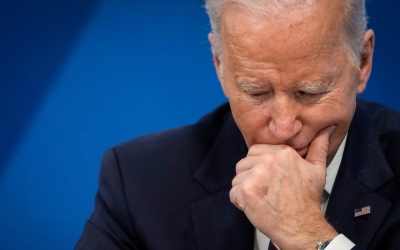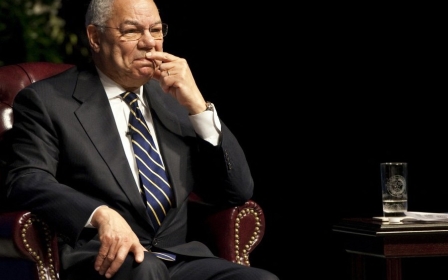Madeleine Albright, former US secretary of state, dies aged 84

Madeleine Albright, the former US secretary of State under the Bill Clinton administration, died on Wednesday at the age of 84, according to her family.
In a statement announcing her death, the Albright family said they were "heartbroken" to announce that she had passed away from cancer while "surrounded by family and friends".
Albright, the child of Czech immigrants who fled from the Nazis, rose to prominence to be the first woman secretary of state in the US from 1997 to 2001. She had served as US ambassador to the United Nations from 1993 to 1997.
While serving as secretary of state, Albright actively promoted the expansion of Nato and military intervention in Kosovo to prevent a genocide against Muslims by former Serbian leader Slobodan Milosevic.
However, her rise to infamy came in 1996 - then serving as ambassador to the UN - when during an interview with CBS's 60 Minutes programme she was asked whether the deaths of more than 500,000 Iraqi children from US-led sanctions was worth it.
At the time, a UN report found that between 1991 to late 1995, as many as 576,000 Iraqi children had died because of the harsh economic sanctions.
"I think that is a very hard choice, but the price, we think, the price is worth it," she said in the interview, which she apologised for years later.
In 2016, when Albright was scheduled to speak at Scripps College, a women's liberal arts college, dozens of faculty protested the move in an open letter to the university, pointing to her remarks about the deaths of Iraqi children, as well as her actions in regards to the Rwandan genocide.
In 2014, a released diplomatic cable revealed that as ambassador to the UN in 1994, Albright proposed that the US take the lead in pushing to remove most of the UN peacekeeping force in Rwanda.
Several days later, most of the UN force was withdrawn, and the situation quickly deteriorated into genocide, with some 800,000 people killed in less than 100 days.
Albright later said this was her "greatest regret from that time".
Middle East Eye delivers independent and unrivalled coverage and analysis of the Middle East, North Africa and beyond. To learn more about republishing this content and the associated fees, please fill out this form. More about MEE can be found here.





